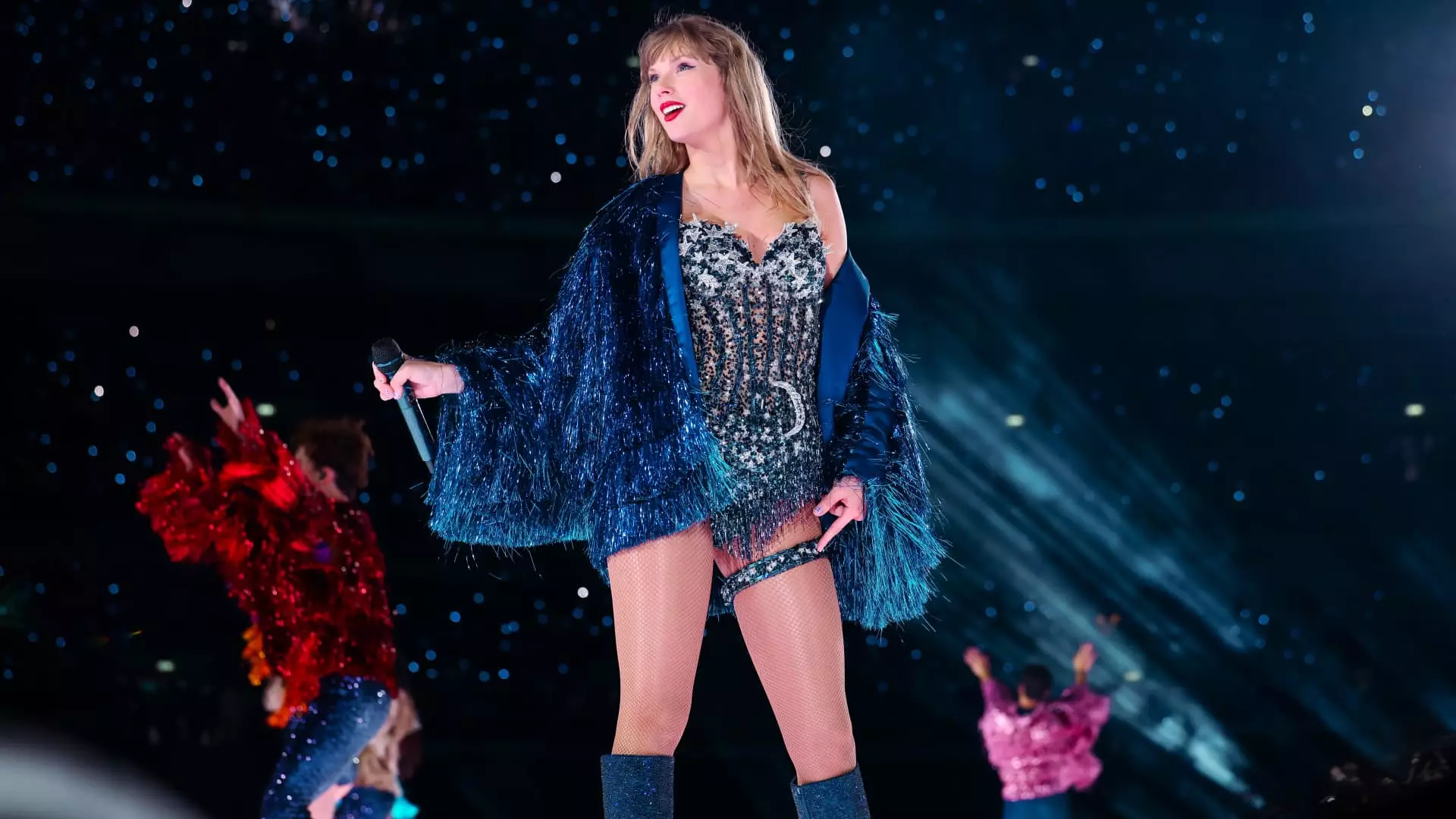In a surprising turn of events that bridges the worlds of politics and pop culture, former President Donald Trump recently launched a public tirade against musician Taylor Swift. This incident comes shortly after Swift publicly endorsed Vice President Kamala Harris, stirring a mix of admiration and outrage. Trump’s reaction, characterized by an all-caps declaration of hatred on Truth Social, demonstrates an increasingly contentious relationship between political figures and celebrities who dare to take a stand on political issues.
Taylor Swift expressed her support for Harris following a presidential debate, where she emphasized the importance of strong leadership. In her statement shared on Instagram, Swift described Harris as a “steady-handed, gifted leader,” advocating for a transition from chaos to calm in American governance. Intriguingly, Swift included a self-referential remark labeling herself as a “childless cat lady.” This phrase was a direct response to disparaging comments made by Republican vice presidential nominee JD Vance about women in the Democratic Party. By asserting her identity within the context of her endorsement, Swift appears to engage directly with the political narrative, showcasing her understanding of the cultural landscape.
Swift’s endorsement gained immediate traction, notably driving substantial traffic—over 300,000 visits—to Vote.gov, a platform that aids voters in navigating state-specific voting procedures. This action demonstrates the tangible impact that a celebrity can have on political engagement, particularly among younger demographics who often look up to such figures. Conversely, Trump’s history of disseminating manipulated AI-generated images of Swift and her fans demonstrates a more toxic aspect of social media—a tactic used to undermine and create confusion about public figures. Swift cited these misleading images as motivation for her public support, indicating the profound influence that digital misinformation can exert on celebrity personas and their engagements in politics.
While the long-term effects of celebrity endorsements on electoral outcomes remain uncertain, Swift’s influence illustrates a significant trend in political campaigning—where popular culture increasingly intertwines with public opinion. Campaign spokesperson Sarafina Chitika commented on Trump’s reactions, labeling his recent weeks as filled with “whining and spouting conspiracy theories.” Such statements highlight the volatile nature of current political debates and how they are often punctuated by the rhetoric of the celebrity culture that surrounds them.
As the discourse continues, the messages from both Swift and Harris emphasize a desire for healing and moving past the divisions of the Trump administration. The phrase “out of the woods” encapsulates this yearning for a more stable political future, contrasting sharply with the tumult of the preceding years. Celebrity endorsements like Swift’s serve not just as endorsements but as vital cultural commentaries, reflecting the collective desire for change among the populace. In essence, this recent episode signifies the gradual merging of entertainment and political activism, where both realms can influence public perception and voter action in unprecedented ways.



Leave a Reply